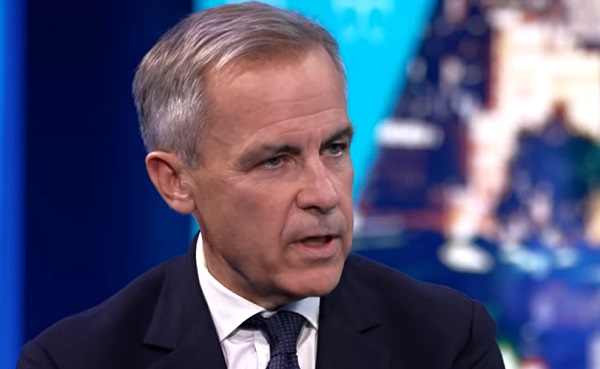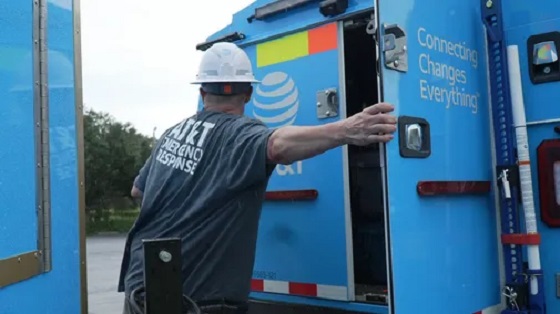DEI
Liberal leadership candidate Mark Carney confirms he will pursue agenda of ‘inclusiveness’

From LifeSiteNews
Liberal leadership candidate Mark Carney, who intends to replace Trudeau, confirmed that ‘while America engages in a war on woke, Canadians will continue to value inclusiveness.’
The top candidate to replace Justin Trudeau as prime minister and Liberal Party leader Mark Carney confirmed he will pursue an “inclusiveness” woke agenda, claiming this is needed to counter U.S. President Donald Trump’s anti-woke agenda.
“There’s a fever gripping America. And while it rages, Canadians will remain resolute and true to our values,” said Carney to reporters Wednesday. “While America engages in a war on woke, Canadians will continue to value inclusiveness.”
Carney’s comments come in light of Trump axing funding to a host of DEI programs, as well as issuing a number of executive orders (EOs) that go against the woke agenda, including orders designed to protect children from chemical and surgical gender mutilation and eliminate gender and critical race theory in eduction.
Carney’s promise to promote “inclusiveness” in Canada in opposition to Trump’s agenda comes only days after Trudeau’s Liberal government promised an extra $41.5 million in taxpayer funds to advance 106 pro-LGBT projects “across Canada.”
Carney, whose ties to globalist groups has had Conservative Party leader Pierre Poilievre call him the World Economic Forum’s “golden boy,” has a history of promoting anti-life and anti-family agendas, including abortion.
The former central banker has also endorsed the carbon tax and even criticized Trudeau when he exempted home heating oil from the tax.
The Liberal Party of Canada will choose its next leader, who will automatically become prime minister, on March 9, after Trudeau announced that he plans to step down as Liberal Party leader once a new leader has been chosen.
Just recently, Carney drew headlines after no less than four journalists from independent media were forcefully barred from attending his Liberal Party leadership candidacy press conference.
DEI
AT&T ditches DE&I

AT&T’s retreat from the diversity, equity, and inclusion playbook marks one of the most significant corporate course corrections of the year — and it didn’t happen by accident. After months of pressure from FCC Chairman Brendan Carr, the telecom giant has confirmed it will unwind its DEI programs top to bottom, ending everything from race-based training modules to staff positions dedicated to enforcing ideological compliance.
The move follows years of controversy, much of it fueled by revelations that AT&T’s internal training materials pushed the notion that racism was a “uniquely white trait” and urged white employees to accept blame as part of a broader critical-race-theory framework. Those claims first surfaced in 2021 through documents obtained by researcher Christopher Rufo, who reported that the company’s curriculum told white staffers they “are the problem.” The backlash never fully subsided — and with Carr signaling that companies seeking key FCC licenses would need to demonstrate they are not running discriminatory programs, the pressure point became impossible for AT&T to ignore.
In a letter sent Monday to Carr, AT&T Senior Executive Vice President and General Counsel David McAtee said the company has overhauled its employment and business practices “to ensure compliance with all applicable laws,” emphasizing that the changes would be substantive, not cosmetic. According to AT&T, that means no hiring quotas, no supplier-contract quotas, no race-based training, and no positions devoted to policing identity-based metrics. DEI courses have been stripped from employee requirements, and the company says it will not resurrect them.
AT&T’s announcement mirrors what has become a growing trend in the corporate world as the regulatory environment shifts. In May, Verizon made a similar pledge, informing the FCC that it, too, would dissolve its DEI department and reassign staff to conventional HR roles. Carr praised that decision at the time as “a good step forward for equal opportunity, nondiscrimination, and the public interest.”
The broader message coming out of Washington is unmistakable: the days of federally regulated industries running ideological experiments under the guise of “equity” are coming to an end. Companies that want federal approval for major licenses are being told to stick to the law, treat employees equally, and drop programs that sort workers by skin color or political theory. AT&T is the latest to fall in line — and almost certainly not the last.
Agriculture
Federal cabinet calls for Canadian bank used primarily by white farmers to be more diverse

From LifeSiteNews
A finance department review suggested women, youth, Indigenous, LGBTQ, Black and racialized entrepreneurs are underserved by Farm Credit Canada.
The Cabinet of Prime Minister Mark Carney said in a note that a Canadian Crown bank mostly used by farmers is too “white” and not diverse enough in its lending to “traditionally underrepresented groups” such as LGBT minorities.
Farm Credit Canada Regina, in Saskatchewan, is used by thousands of farmers, yet federal cabinet overseers claim its loan portfolio needs greater diversity.
The finance department note, which aims to make amendments to the Farm Credit Canada Act, claims that agriculture is “predominantly older white men.”
Proposed changes to the Act mean the government will mandate “regular legislative reviews to ensure alignment with the needs of the agriculture and agri-food sector.”
“Farm operators are predominantly older white men and farm families tend to have higher average incomes compared to all Canadians,” the note reads.
“Traditionally underrepresented groups such as women, youth, Indigenous, LGBTQ, and Black and racialized entrepreneurs may particularly benefit from regular legislative reviews to better enable Farm Credit Canada to align its activities with their specific needs.”
The text includes no legal amendment, and the finance department did not say why it was brought forward or who asked for the changes.
Canadian census data shows that there are only 590,710 farmers and their families, a number that keeps going down. The average farmer is a 55-year-old male and predominantly Christian, either Catholic or from the United Church.
Data shows that 6.9 percent of farmers are immigrants, with about 3.7 percent being “from racialized groups.”
National census data from 2021 indicates that about four percent of Canadians say they are LGBT; however, those who are farmers is not stated.
Historically, most farmers in Canada are multi-generational descendants of Christian/Catholic Europeans who came to Canada in the mid to late 1800s, mainly from the United Kingdom, Ireland, Ukraine, Russia, Italy, Poland, the Netherlands, Germany, and France.
-

 International2 days ago
International2 days agoTrump confirms first American land strike against Venezuelan narco networks
-

 Business2 days ago
Business2 days agoHow convenient: Minnesota day care reports break-in, records gone
-

 International15 hours ago
International15 hours agoMaduro says he’s “ready” to talk
-

 Business2 days ago
Business2 days agoThe great policy challenge for governments in Canada in 2026
-

 Bruce Dowbiggin15 hours ago
Bruce Dowbiggin15 hours agoThe Rise Of The System Engineer: Has Canada Got A Prayer in 2026?
-

 International15 hours ago
International15 hours agoLOCKED AND LOADED: Trump threatens U.S. response if Iran slaughters protesters



